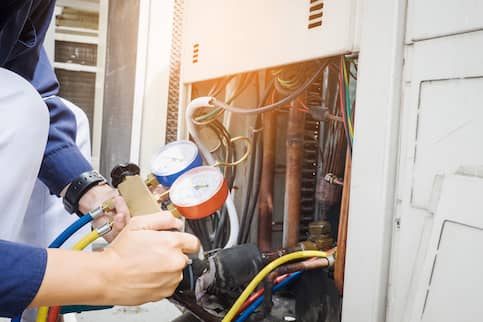An accident of any kind can wreak havoc on your life – and your savings. When the costs associated with an accident exceed the liability coverage provided through your auto or homeowners insurance policy, you might find yourself footing the bill with your assets. But if you have an umbrella policy, a scenario like this can be much less stressful.
What is an umbrella policy? It offers a safeguard against this worst-case scenario by stepping in to cover additional liability costs. Should you pay for this extra layer of protection? Understanding how an umbrella insurance policy works can help you determine if it’s the right fit for your situation.
Key Takeaways:
- Umbrella insurance provides extra liability insurance beyond the coverage limits of your existing policies.
- An umbrella insurance policy could cover medical expenses for someone else’s injuries, property damage costs or legal costs if someone accuses you of libel or slander.
- Typically, you can expect to pay around $380 per year for $1 million of coverage.
What Is An Umbrella Policy?
An umbrella insurance policy protects you from claims that otherwise wouldn’t be covered by your homeowners insurance or auto insurance.
When buying a home or vehicle, you’re typically required to pay for a minimum level of liability insurance. Every insurance policy has coverage limits, however. An umbrella policy offers an added level of protection. If a claim exceeds the limits of your current auto or homeowners insurance policy, the umbrella policy will kick in to protect your savings and assets from liability.
What’s Your Goal?
Buy A Home
Discover mortgage options that fit your unique financial needs.

Refinance
Refinance your mortgage to have more money for what matters.
Tap Into Equity
Use your home’s equity and unlock cash to achieve your goals.
How Does Umbrella Insurance Work?
An umbrella insurance policy covers you, beyond the limits of your other insurance policies, for bodily injury liability, property damage liability and personal liability.
For example, if someone is injured after falling at your home, your homeowners insurance will likely pay a liability claim. That claim amount, however, could exceed the limit of your homeowners insurance policy. Without an umbrella policy, you would be on the hook for additional damages, which could mean liquidating your life savings to cover the lawsuit damages.
If you have an umbrella insurance policy, it will kick in where your homeowners insurance policy ends. At that point, your umbrella policy can help protect your savings and assets by covering the costs of the claim. Depending on the situation, an umbrella policy could save you tens of thousands of dollars.
Ready To Become A Homeowner?
Get matched with a lender that can help you find the right mortgage.
What Does An Umbrella Policy Cover And Not Cover?
The details of an umbrella policy can vary from one insurer to another. Consider what an umbrella policy may or may not cover in various situations:
| Liability Examples | Umbrella Policy Coverage |
|---|---|
| Damages to another person’s home or possessions | Yes |
| Business losses | No |
| Medical costs for other individuals | Yes |
| Intentional vandalism | No |
| Lawsuit resulting from an accident | Yes |
| Charges of libel or slander | Yes |
| Damage or injuries caused by an excluded dog breed or an excluded vehicle | No |
A Closer Look At What An Umbrella Policy Covers (And What It Doesn’t Cover)
Let’s explore in more detail the kinds of scenarios that might be covered (or not) by an umbrella policy:
- Damage to another person’s property: If you cause damage to another person’s property, such as a home or vehicle, an umbrella policy might help you pay for the damages after your homeowners or auto insurance policy limits are reached.
- Medical costs for other individuals: If you injure someone else, an umbrella policy could help you pay for their medical expenses. For example, if someone gets hurt on your property and the costs exceed your homeowners insurance policy limits, your umbrella policy would kick in.
- Business losses: If you lose money in business, your insurer will not pick up the tab.
- Intentional vandalism: If you intentionally vandalize someone’s property, that’s not covered by an umbrella policy.
- Lawsuit resulting from an accident: Lawsuits can get expensive quickly. If an accident leads to a lawsuit, your umbrella policy could help pay your legal bills.
- Charges of libel or slander: If you’re accused of libel or slander, your homeowners insurance policy likely won’t protect you. But an umbrella policy could help you pay to defend yourself in court.
- Damage or injuries caused by an excluded dog breed or vehicle: If a specific type of dog breed or vehicle is excluded from your coverage, an umbrella policy won’t help you pay for damages.
Take The First Step To Buying A Home
Find a lender that will work with your unique financial situation.
Umbrella Policy Pros And Cons
Any insurance purchase has advantages and disadvantages. Consider these factors when determining if an umbrella policy is right for you:
Umbrella Insurance Policy Pros
An umbrella insurance policy offers some peace-of-mind upsides:
- Protection for savings and personal assets: With an umbrella policy in place, you are better protected from loss and less likely to lose your life savings if something goes wrong.
- Reasonable pricing for the potential payout: In general, an umbrella policy can be relatively affordable, especially when you consider the potential payout.
- Coverage for situations not covered by other insurance policies: An umbrella policy gives you more coverage for situations like libel or accident lawsuits, which offers more security for your finances.
Umbrella Insurance Policy Cons
There are a few downsides of an umbrella insurance policy:
- Some personal injuries or property damage may not be covered: Even though most umbrella policies are relatively robust, your policy may not cover some situations.
- Having an additional payment each year: Adding another insurance policy to your life means adding another payment to your budget.
- Liability limits on what’s covered: An umbrella policy comes with its own limits attached.
- Your home or auto liability limits must meet minimum requirements: Before you can purchase an umbrella policy, the insurer may require that you increase liability coverage limits for your other insurance policies in order to meet certain liability minimums.
Who Needs Umbrella Insurance?
You’re not legally required to purchase an umbrella insurance policy, but this type of insurance can be a good option for some people. You may be a good candidate for such a policy if:
- You have significant savings or other assets
- You own a swimming pool or trampoline
- You have a dog
- You have inexperienced drivers in your family
- You regularly have guests visiting your home
- You own multiple rental properties
How Much Does An Umbrella Insurance Policy Cost?
Before purchasing any new insurance policy, consider the price. According to a report from ACE Private Risk Services, the typical cost for an umbrella insurance policy is $383 per year for $1 million in coverage. The exact cost can vary depending on the insurer, how much coverage you purchase and the level of risk you pose to your insurer.
For instance, if you own a swimming pool or a trampoline, you’ll be seen as a higher risk and will likely pay more for a policy. Umbrella insurance is typically sold in $1 million increments up to $5 million – and the more coverage you choose, the more you’ll pay.
Umbrella Policy FAQ
Here are some answers to common questions people have regarding umbrella policies:
Just keep in mind that in most cases, you will need to show that you have purchased a minimum amount of liability insurance on your homeowners or auto policy before you can buy an umbrella policy. For example, you’ll usually need to have at least $300,000 in liability insurance before you can add an umbrella policy to your homeowners insurance.
The Bottom Line: An Umbrella Policy Can Provide An Added Layer of Protection
An umbrella policy offers an additional way to protect your savings and assets. Umbrella insurance coverage kicks in once the liability limits of your homeowners or car insurance policies are reached. If you want to take your insurance coverage to the next level, consider investing in an umbrella policy. Just make sure you know what’s covered and what’s not.

Natasha Etzel
Natasha Etzel is a financial writer with over a decade of experience. She has covered various financial topics, including mortgages, personal loans, home equity loans, debt consolidation, and refinancing. She writes for financial companies, including mortgage lenders, and various publications, including NerdWallet, Newsweek, The Motley Fool, and more.












